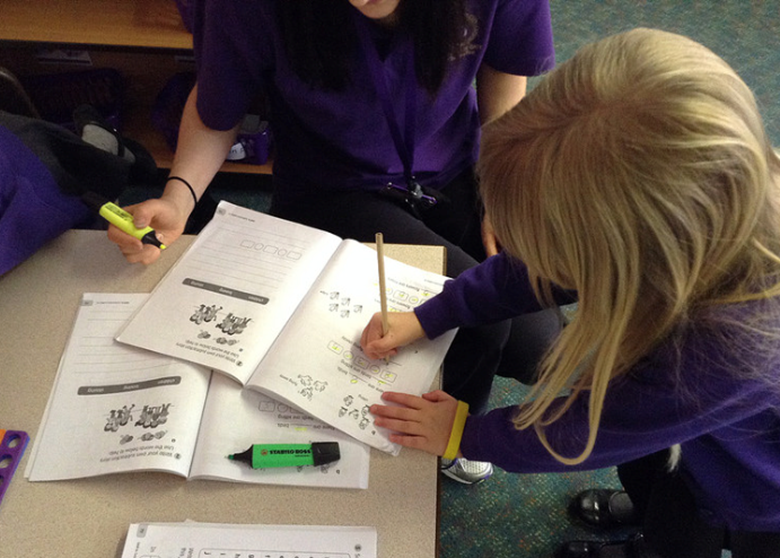Greening announces plans for reception-age baseline checks
Joe Lepper
Friday, September 15, 2017
Four- and five-year-olds will be expected to sit baseline tests when they start reception school as part of a raft of changes to the way children are assessed, the government has announced.

In its response to a consultation on primary school assessment launched earlier this year, the government states that the baseline check will be used to track pupils' progress throughout primary school. It will be piloted during the 2019/20 academic year and then rolled out across England in autumn 2020.
The move means reception-age children will be subject to two tests, as the early years foundation stage profile check at the end of reception year will continue. However, the government has pledged to explore ways to reduce the burden on teachers.
Other primary assessment changes announced by the government include the scrapping of compulsory SATs for seven-year-olds. From 2023 these will become non-mandatory.
SATs for children aged 11 will still take place and from 2019/20 eight- and nine-year-olds will have to sit times tables tests to assess their maths skills.
The government has also promised to work with the teaching profession and education experts to develop the new baseline tests for children entering reception, including how to ensure they are accessible to children with special educational needs and disabilities, as well as pupils who speak English as an additional language.
"A good primary education lays the foundations for success at secondary school and beyond," Education Secretary Justine Greening said.
"This year's Key Stage 2 results showed our curriculum reforms are starting to raise standards and it is vital we have an assessment system that supports that.
"These changes will free up teachers to educate and inspire young children while holding schools to account in a proportionate and effective way."
The proposals represent the second attempt by the government to introduce reception baseline assessment in the last two years.
Non-mandatory tests were introduced for children as young as four in 2015 but, amid concerns from early years leaders around their accuracy, the government announced in April 2016 it was ditching plans to use these as a starting point for measuring pupil progress, as they were "not sufficiently comparable".
The government concedes there is still widespread opposition from within the early years sector to baseline testing of reception-age children, with one in four respondents criticising the move.
"Around a quarter disagreed with the proposal to move to a reception baseline," the government's response to the consultation states.
"Most of the respondents who disagreed raised concerns about the reliability of an assessment in reception. Some respondents also expressed concerns about the previous unsuccessful attempt to introduce a new baseline for progress measures in 2015."
Early years charity Early Education has criticised the new baseline tests saying the government has failed to provide evidence that such an assessment in reception will be able to accurately show progress throughout their primary schooling.
"We are disappointed that government has not listened to the views of early years practitioners and researchers and seems set to repeat its costly and misguided attempts to reintroduce a commercially run baseline assessment scheme in reception. Early labelling of children based on flawed data is deeply damaging to children's progress," the charity said.
However, National Association of Head Teachers deputy general secretary Nick Brook, backed the government's decision to favour baseline reception testing over SATs for seven-year-olds.
He said: "Under current accountability arrangements, the hard work and success of schools during those critical first years is largely ignored.
"If designed properly, these new assessments can provide useful information for schools to help inform teaching and learning whilst avoiding unnecessary burdens on teachers or anxiety for young children."




